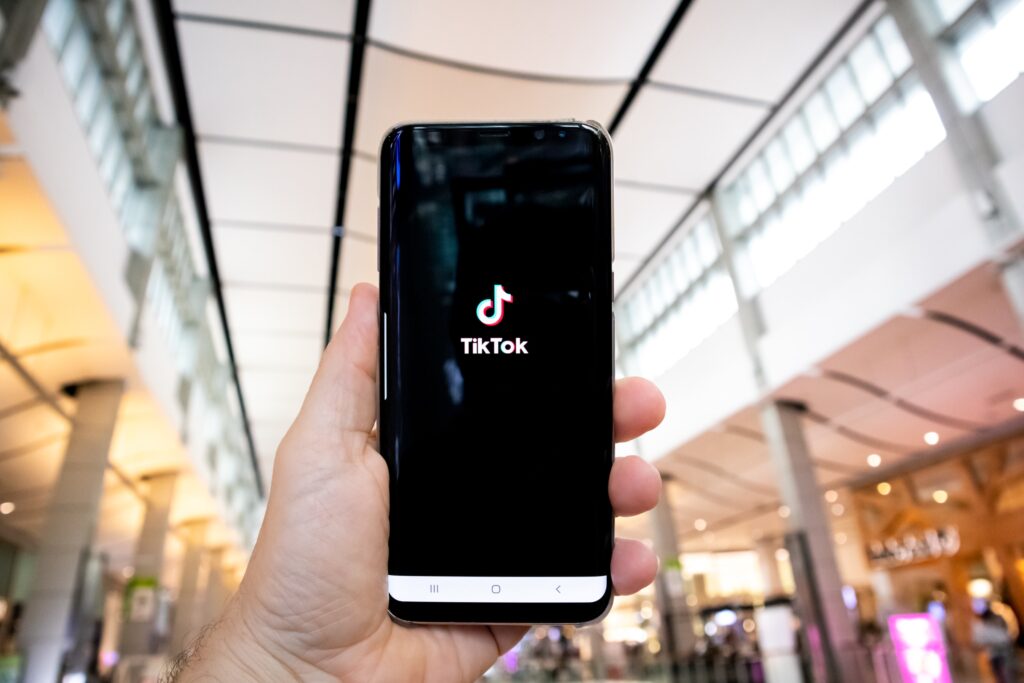Social media networks have become an indispensable component of electronic commerce, bestowing prospects to interact with clientele, establish brand cognizance, and augment trade. Innumerable networks are at one’s disposal, posing a conundrum to distinguish which ones proffer the most commendable functionalities and boons to e-commerce enterprises. In this article, we delve into the top 10 social media networks for e-commerce firms, scrutinizing every platform’s features and pros.
No. 1 Facebook – The Social Media Giant
Facebook is the world’s largest social media platform, with billions of users worldwide. It provides e-commerce businesses with the opportunity to create a dedicated business page, engage with customers, and promote products and services.
Key features
- Business Page – Create a dedicated Facebook business page to share product information, promotional content, and customer reviews. It can help to increase brand visibility and allows for direct interaction with customers.
- Facebook Shops – Set up a customizable online store within the platform, enabling customers to browse and purchase products directly from the Facebook page. It can help to streamline the shopping experience and increase conversion rates.
- Advertising Tools – Utilize Facebook’s advertising tools, including targeted ads and boosted posts, to reach a wider audience and drive sales. It can help to allow for precise audience targeting and improves ad performance.
Pros of Facebook for e-commerce businesses
- Vast user base, increasing the potential for customer engagement and sales
- Integrated e-commerce features, such as Facebook Shops, to streamline the shopping experience
- Advanced advertising tools for audience targeting and ad performance tracking
No. 2 Instagram – A Visual Marketplace
Instagram is a visually driven social media platform with a focus on images and videos. It offers a variety of e-commerce features, including shoppable posts and stories, making it an ideal platform for showcasing products and driving sales.
Key features
- Shoppable Posts – Tag products in Instagram posts, allowing users to view product details and make purchases directly from the app. It can help to simplify the shopping process and increase conversion rates.
- Instagram Stories – Share time-sensitive content and promotions through Instagram Stories, which disappear after 24 hours. It can help to encourage immediate customer action and helps maintain customer interest.
- Influencer Marketing – Collaborate with Instagram influencers to promote products and reach a wider audience. It can help to increase brand exposure and credibility through influencer endorsements.
Pros of Instagram for e-commerce businesses
- Visually appealing platform, ideal for showcasing products and capturing customer attention
- Shoppable posts and stories that facilitate in-app purchases
- Effective influencer marketing opportunities to boost brand exposure and credibility
No. 3 Pinterest – A Shoppable Inspiration Board
Pinterest is a visual discovery platform where users can create and share boards of curated images, often used for inspiration and ideas. For e-commerce businesses, Pinterest offers a unique opportunity to showcase products, drive website traffic, and increase sales through shoppable pins.
Key features
- Shoppable Pins – Add product details and pricing to pins, allowing users to make purchases directly from the platform. It can help to simplify the shopping process and increase conversion rates.
- Rich Pins – Use rich pins to provide additional information, such as product availability and real-time pricing, directly on the pin. It can help to enhance the shopping experience and encourage informed purchasing decisions.
- Promoted Pins – Leverage promoted pins to boost visibility and reach a wider audience on the platform. It can help to increase brand exposure and drive website traffic.
Pros of Pinterest for e-commerce businesses
- Highly visual platform, ideal for showcasing products and inspiring customer purchases
- Shoppable and rich pins that provide a seamless shopping experience
- Promoted pins to increase brand visibility and drive website traffic
No. 4 Twitter – Real-Time Engagement and Conversations
Twitter is a real-time social media platform that allows e-commerce businesses to engage in conversations, share updates, and promote products through short messages called tweets. The platform is ideal for building brand awareness and engaging with customers on a personal level.
Key features
- Customer Engagement – Use Twitter to engage in real-time conversations with customers, answer questions, and gather feedback. It can help to build brand loyalty and help maintain a positive brand image.
- Promotional Content – Share product updates, promotions, and news through tweets and multimedia content. It can help to increase product visibility and drive customer interest.
- Twitter Ads – Utilize Twitter’s advertising tools, such as promoted tweets and sponsored trends, to reach a wider audience and drive sales. It can help to allow for precise audience targeting and improves ad performance.
Pros of Twitter for e-commerce businesses
- Real-time engagement opportunities to build brand loyalty and maintain a positive brand image
- Platform for sharing promotional content and product updates
- Advanced advertising tools for audience targeting and ad performance tracking
No. 5 LinkedIn – Professional Networking for B2B E-commerce
LinkedIn is a professional networking platform that focuses on business connections and industry-specific content. For B2B e-commerce businesses, LinkedIn offers an opportunity to establish credibility, engage with potential clients, and share relevant industry news and insights.
Key features
- Company Page – Create a LinkedIn company page to showcase the e-commerce business, share updates, and post industry-related content. It can help to build brand credibility and helps establish the business as an industry leader.
- Networking Opportunities – Utilize LinkedIn to connect with potential clients, partners, and industry professionals. It can help to facilitate business growth and expand professional networks.
- Sponsored Content – Leverage sponsored content to reach a wider audience and promote products or services to a targeted demographic. It can help to increase brand visibility and generate leads.
Pros of LinkedIn for e-commerce businesses
- Ideal platform for B2B e-commerce, facilitating professional connections and growth
- Company pages that showcase the business and establish industry credibility
- Sponsored content opportunities to promote products or services and generate leads
No. 6 YouTube – Video Marketing for E-commerce Success
YouTube is the world’s largest video-sharing platform, offering e-commerce businesses the opportunity to engage with customers through video content. Videos can be used to showcase products, share customer testimonials, and provide tutorials, making it an ideal platform for driving sales and building brand loyalty.
Key features
- Product Videos – Create and share product videos that demonstrate features, benefits, and use cases. It can help customers make informed purchasing decisions and increase conversion rates.
- Tutorials and How-to Videos – Share tutorial and how-to videos to educate customers on product usage and maintenance. It can help to provide added value to customers and build brand loyalty.
- YouTube Advertising – Utilize YouTube’s advertising options, such as pre-roll ads and sponsored videos, to reach a wider audience and promote products. It can help to increase brand visibility and drive website traffic.
Pros of YouTube for e-commerce businesses
- Engaging video content that showcases products and drives sales
- Tutorials and how-to videos that provide added value and build brand loyalty
- Advertising opportunities to increase brand visibility and drive website traffic
No. 7 TikTok – Captivating Short-Form Videos
TikTok is a social media platform that focuses on short-form videos, providing e-commerce businesses with an opportunity to create engaging and entertaining content that captures the attention of a younger audience.
Key features
- Short-Form Videos – Create and share captivating short-form videos that showcase products and engage with customers. It can help to appeal to a younger audience and encourages customer interaction.
- Hashtag Challenges – Participate in or create hashtag challenges to increase brand visibility and encourage user-generated content. It can help to boost brand exposure and fosters a sense of community among users.
- TikTok Advertising – Utilize TikTok’s advertising options, such as sponsored hashtags and in-feed ads, to reach a wider audience and promote products. It can help to increase brand visibility and drive website traffic.
Pros of TikTok for e-commerce businesses
- Engaging short-form videos that capture the attention of a younger audience
- Hashtag challenges that boost brand exposure and encourage user-generated content
- Advertising opportunities to increase brand visibility and drive website traffic
No. 8 Snapchat – Ephemeral Content for a Younger Audience
Snapchat is a social media platform known for its ephemeral content, which disappears after a short period. For e-commerce businesses targeting a younger demographic, Snapchat offers a unique opportunity to share time-sensitive promotions and exclusive content.
Key features
- Snapchat Stories – Share product updates, promotions, and behind-the-scenes content through Snapchat Stories, which disappear after 24 hours. It can help to encourage immediate customer action and maintain customer interest.
- Exclusive Offers – Provide exclusive offers and promotions only available through Snapchat to incentivize customers to make purchases. It can help to drive sales and reward loyal customers.
- Snapchat Advertising – Utilize Snapchat’s advertising options, such as sponsored lenses and Snap Ads, to reach a wider audience and promote products. It can help to increase brand visibility and drive website traffic.
Pros of Snapchat for e-commerce businesses
- Ephemeral content that appeals to a younger audience and encourages immediate action
- Exclusive offers and promotions to drive sales and reward customer loyalty
- Advertising opportunities to increase brand visibility and drive website traffic
No. 9 WhatsApp – Personalized Customer Engagement
WhatsApp is a messaging platform that allows e-commerce businesses to communicate directly with customers, providing personalized customer service and facilitating sales through one-on-one interactions.
Key features
- Direct Communication – Use WhatsApp to communicate directly with customers, answer questions, and provide personalized product recommendations. It can help to build customer trust and loyalty through personalized interactions.
- Customer Support – Offer real-time customer support through WhatsApp, addressing customer concerns and issues promptly. It can help to enhance the customer experience and improve brand reputation.
- Sales Opportunities – Utilize WhatsApp to facilitate direct sales through personalized product recommendations and promotions. It can help to encourage customer purchases and provide an additional sales channel.
Pros of WhatsApp for e-commerce businesses
- Personalized communication that builds customer trust and loyalty
- Real-time customer support to enhance the customer experience and improve brand reputation
- Direct sales opportunities through personalized product recommendations and promotions
No. 10 Reddit – Niche Communities and Targeted Marketing
Reddit is a social media platform that focuses on user-generated content, discussion threads, and niche communities known as subreddits. For e-commerce businesses, Reddit offers the opportunity to engage with highly-targeted audiences and participate in communities relevant to their industry or products.
Key features
- Subreddits – Join and participate in niche communities (subreddits) relevant to the e-commerce business’s industry or products. It can help to provide access to highly-targeted audiences and fosters authentic engagement.
- User-Generated Content – Share valuable content, such as blog posts, product announcements, and promotional offers, to engage with users and drive website traffic. It can help to enhance brand reputation and foster customer loyalty through valuable content sharing.
- Ask Me Anything (AMA) Sessions – Host Ask Me Anything (AMA) sessions to engage with users, answer questions, and provide insights into the business or products. It can help to build brand credibility and trust through transparent and authentic interactions.
Pros of Reddit for e-commerce businesses
- Access to niche communities and highly-targeted audiences for authentic engagement
- Sharing of valuable content to enhance brand reputation and foster customer loyalty
- AMA sessions that build brand credibility and trust through transparent interactions
In today’s digital landscape, e-commerce businesses can benefit from leveraging the power of social media platforms to drive sales, engage with customers, and build brand awareness. Each platform offers unique features and opportunities:
- Facebook – Comprehensive Marketing Tools and a Massive User Base
- Instagram – Visual Storytelling and Shoppable Posts
- Pinterest – A Shoppable Inspiration Board
- Twitter – Real-Time Engagement and Conversations
- LinkedIn – Professional Networking for B2B E-commerce
- YouTube – Video Marketing for E-commerce Success
- TikTok – Captivating Short-Form Videos
- Snapchat – Ephemeral Content for a Younger Audience
- WhatsApp – Personalized Customer Engagement
- Reddit – Niche Communities and Targeted Marketing
E-commerce businesses have a wide array of social media platforms to choose from, each with its unique strengths and target audiences. By exploring and strategically utilizing the top 10 social media platforms mentioned in this article, e-commerce businesses can maximize their online presence, engage with their customers, and achieve success in today’s competitive marketplace. The key is to identify the platforms that best align with the business’s goals and audience, and then tailor marketing efforts to leverage the unique features and benefits that each platform offers.







